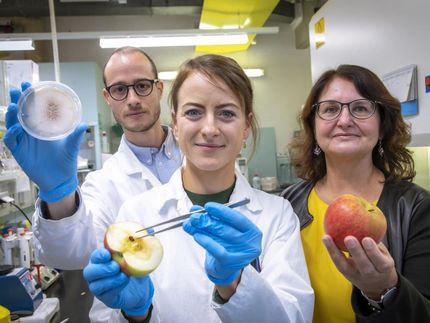Farmers' association presents sobering balance sheet for 2024 grain harvest
Rukwied: Downward trend in volumes and qualities continues
Advertisement
In its 2024 crop balance sheet, the German Farmers' Association expects the grain harvest to be well below average. At 39.3 million tons, this year's grain harvest will fall short of the 40 million ton mark. This continues the ten-year downward trend in grain harvests. In the previous year, around 42 million tons of grain were harvested. Both the harvest quantities and, in some cases, the quality have suffered massively in some regions due to the recurring and in some cases very heavy rainfall.
According to the latest figures, the harvest volume for wheat, the most important crop, is 18.0 million tons, significantly below the previous year (2023: 21.2 million tons). Due to unfavorable weather conditions at sowing time in autumn, the area under winter wheat has decreased by around 330,000 hectares this year, which is one of the reasons for the low harvest volume. However, the renewed drop in yields per hectare also reflects the downward trend in winter wheat. This year's winter barley harvest volume of 8.9 million tons is also below the previous year's volume of 9.5 million tons. With an average yield of 33.8 dt/ha, the 2024 winter rapeseed harvest is at a similarly low level to the previous year (33.5 dt/ha). Due to a smaller area under cultivation, the total rapeseed harvest volume has also fallen to 3.7 million tons (2023: 3.9 million tons).
According to the President of the German Farmers' Association, Joachim Rukwied, this year's grain harvest was another nail-biter that ended in great disappointment due to a drop in quantity and quality: "Extremely wet weather from autumn to early summer, a lack of sunshine and, finally, repeated rainfall at harvest time, which often slowed down the combine harvesters - all of this presented our farmers with enormous challenges this year. In addition, there was frost damage to rapeseed, fruit and grapes at flowering time. The well below-average grain harvest, which is even below the 40 million ton mark, once again shows the clearly noticeable effects of climate change and failed legislative requirements. In order to secure yields and quality in the future, impractical and impracticable requirements must be abolished! It is unacceptable that quality wheat is in demand, but we farmers can only produce feed wheat due to ever new regulations - for example on fertilization."
According to DBV President Rukwied, the increasing restrictions on crop protection are also exacerbating the decline in yields and quality in cereals and rapeseed. "In particular, the strong infection pressure from fungal diseases this season shows how important it is to be able to protect plants. Effective plant protection is an essential prerequisite for safe and healthy food. The so-called 'future program' for plant protection offers no solutions to the challenges we face in arable farming! We urgently need a new direction in plant protection policy," emphasizes Rukwied.
Autumn crops such as sugar beet, maize, potatoes and vegetables have largely benefited from the rainfall. However, potatoes in particular are suffering badly from late blight. New diseases such as Stolbur and Syndrome Basses Richesses (SBR) are also occurring more frequently in sugar beet. In fruit growing, there is considerable damage, particularly due to late frosts, and here too, restrictions on plant protection and the minimum wage are making for a difficult overall situation. According to initial estimates, the volume of wine is also expected to be below average across the growing regions.
Rukwied is particularly critical of the current market situation: "The extreme drop in prices, especially on the grain markets, is causing enormous problems for us farmers. In conjunction with the high input costs, it is hardly possible to grow grain economically in Germany at the current price level!" According to Rukwied, the numerous political and legislative hurdles that have been placed in the way of farms in recent years are further limiting the competitiveness of domestic agriculture. An effective program to restore competitiveness is urgently needed here, said Rukwied.
The DBV harvest report is an extrapolation and is based on reports from the 18 state farmers' associations on the areas actually harvested and the yields achieved.
Note: This article has been translated using a computer system without human intervention. LUMITOS offers these automatic translations to present a wider range of current news. Since this article has been translated with automatic translation, it is possible that it contains errors in vocabulary, syntax or grammar. The original article in German can be found here.
































































